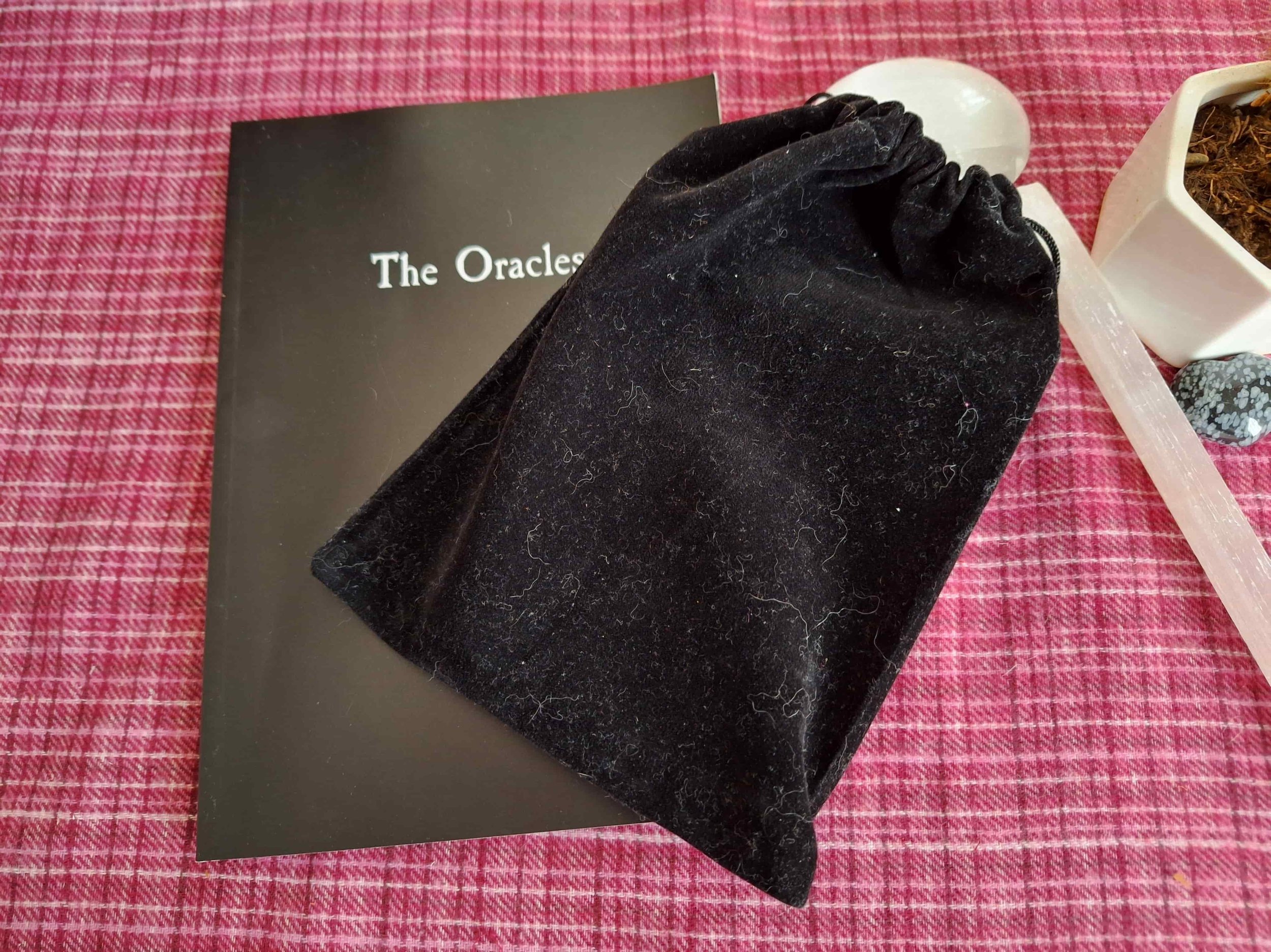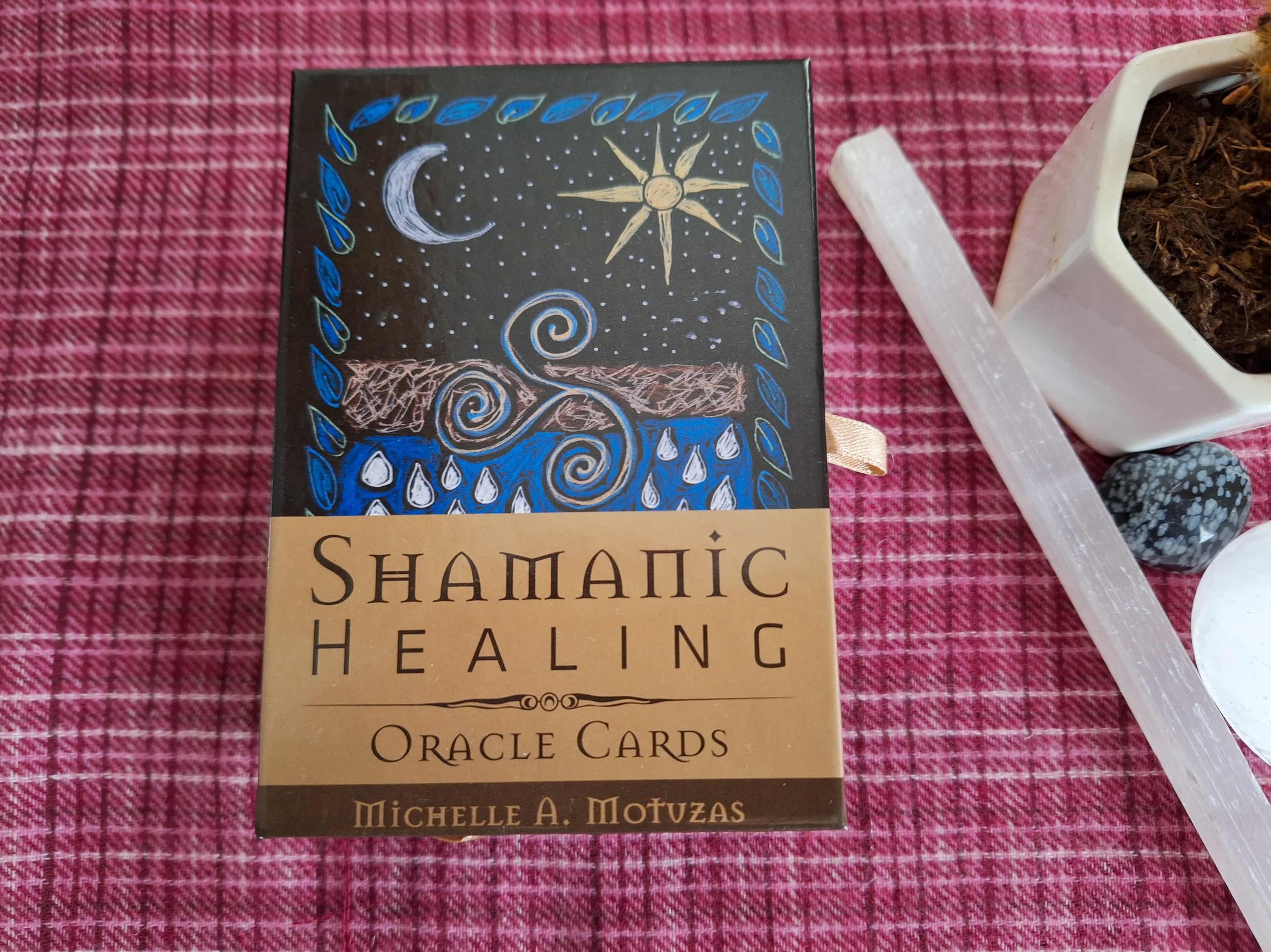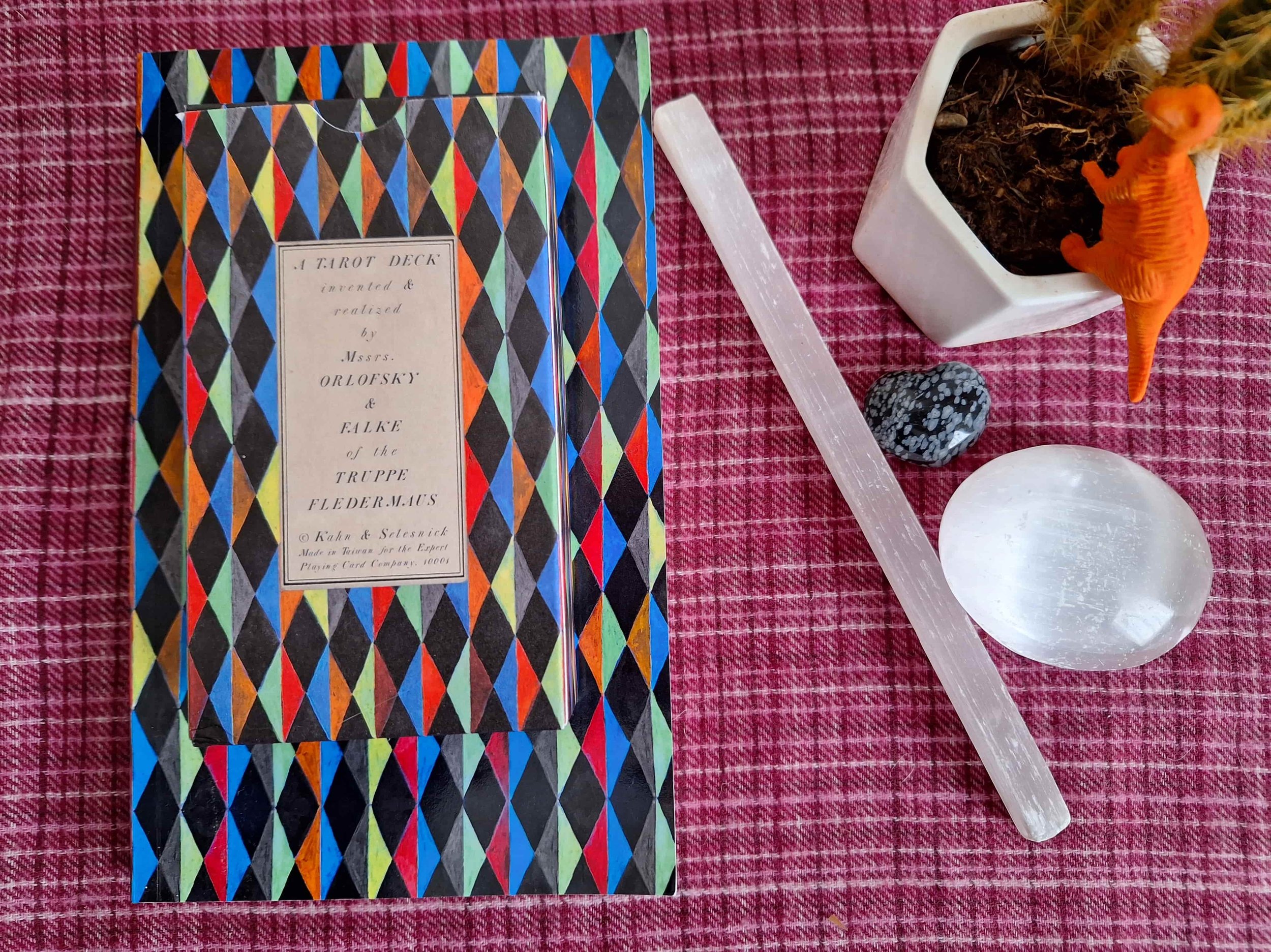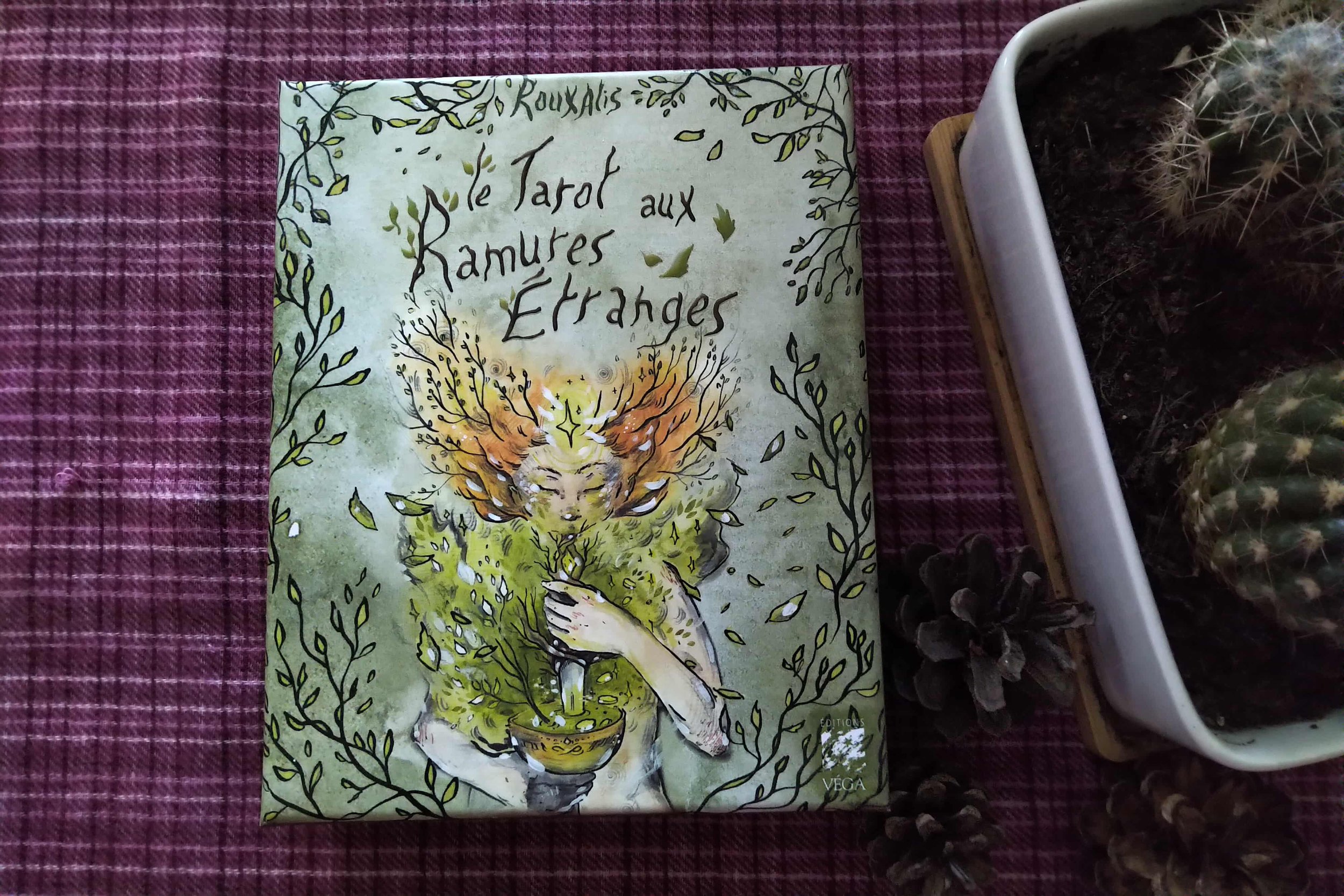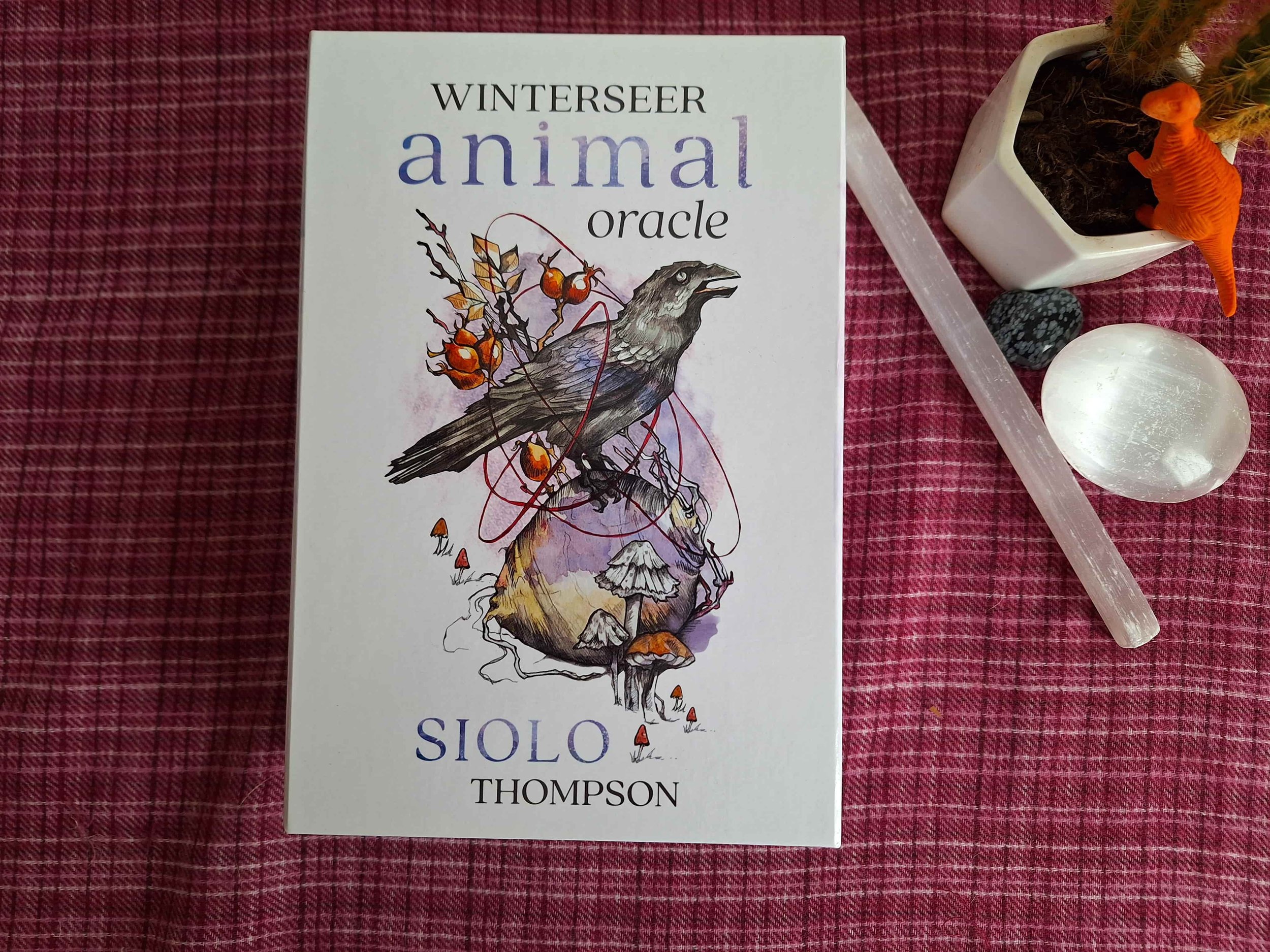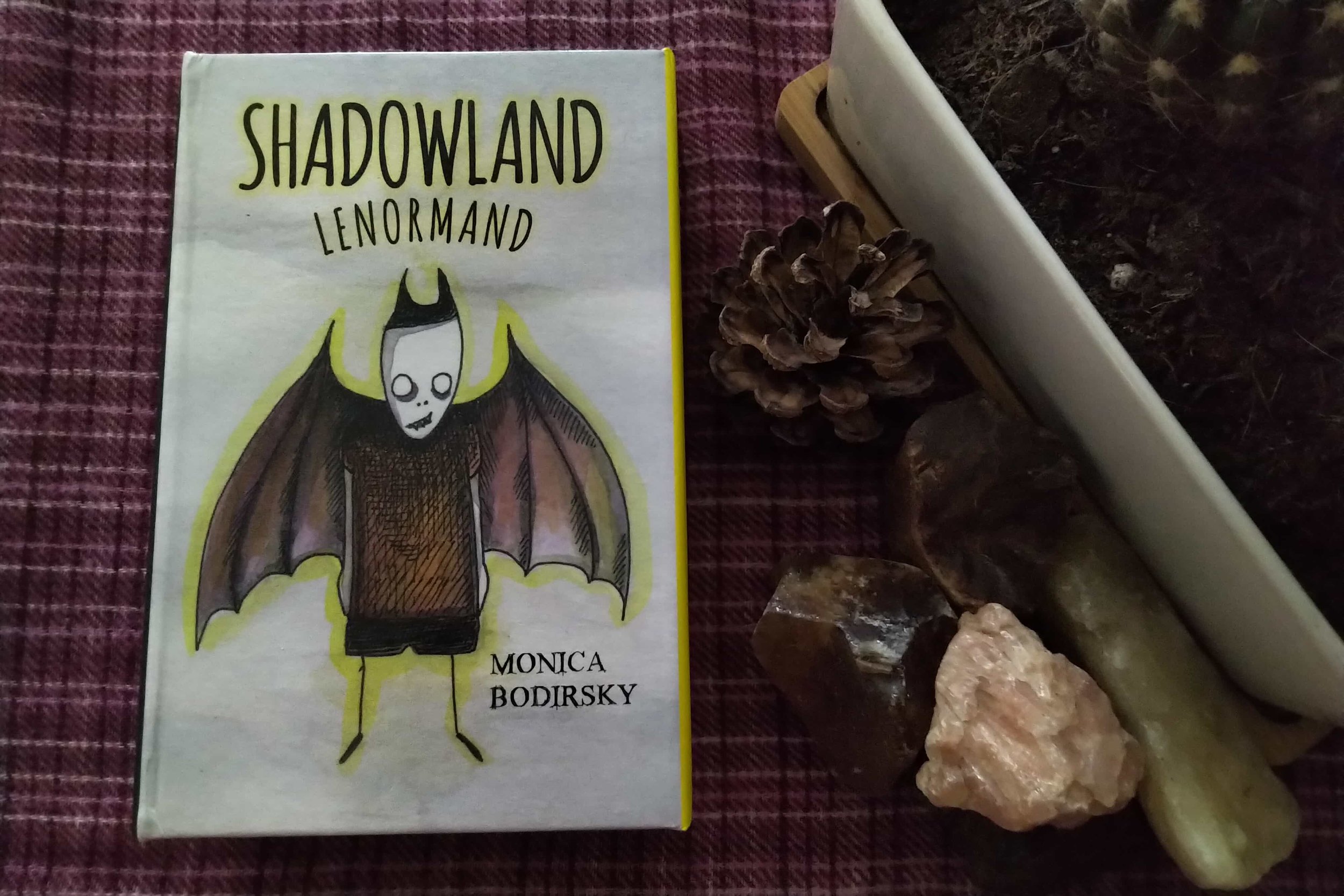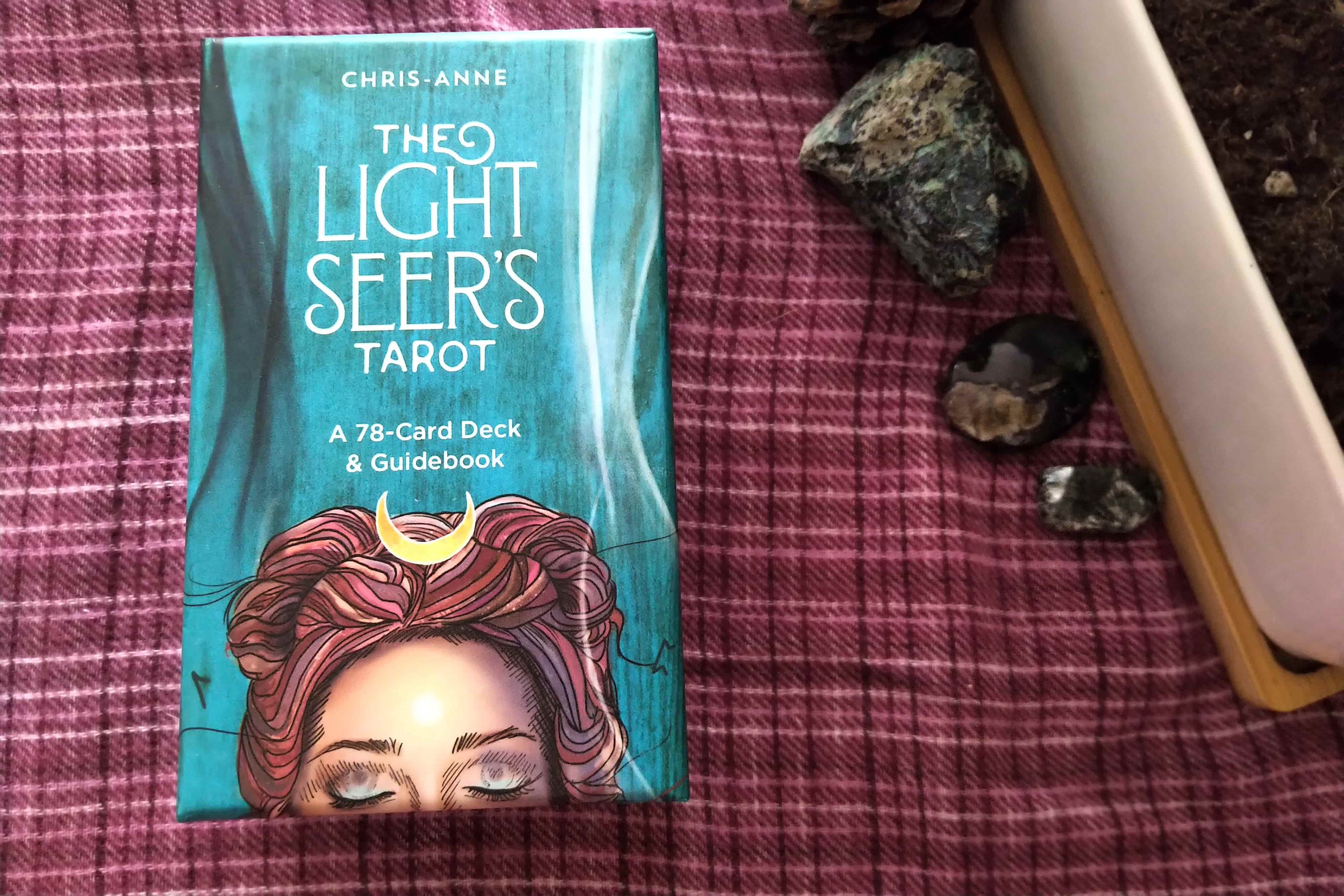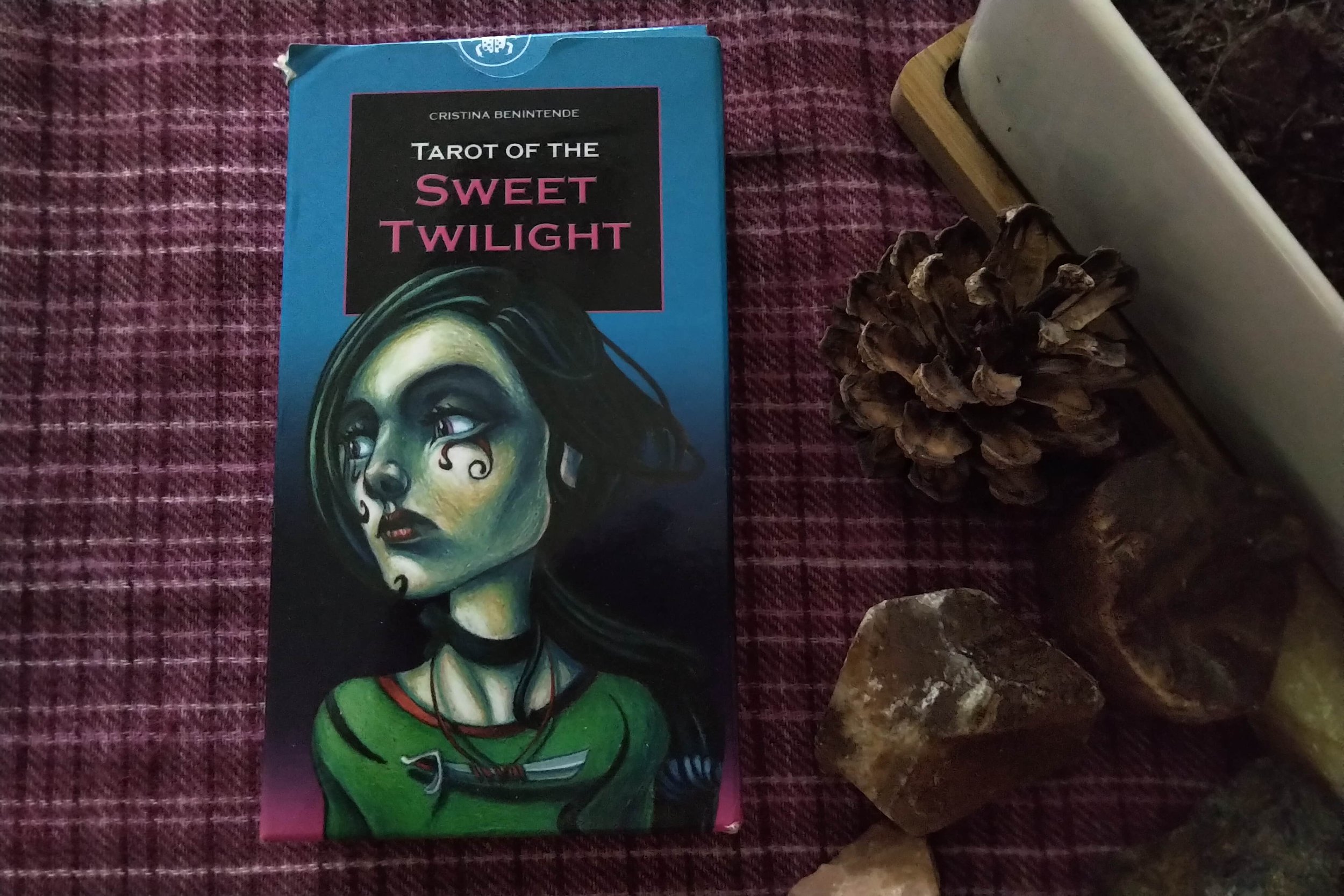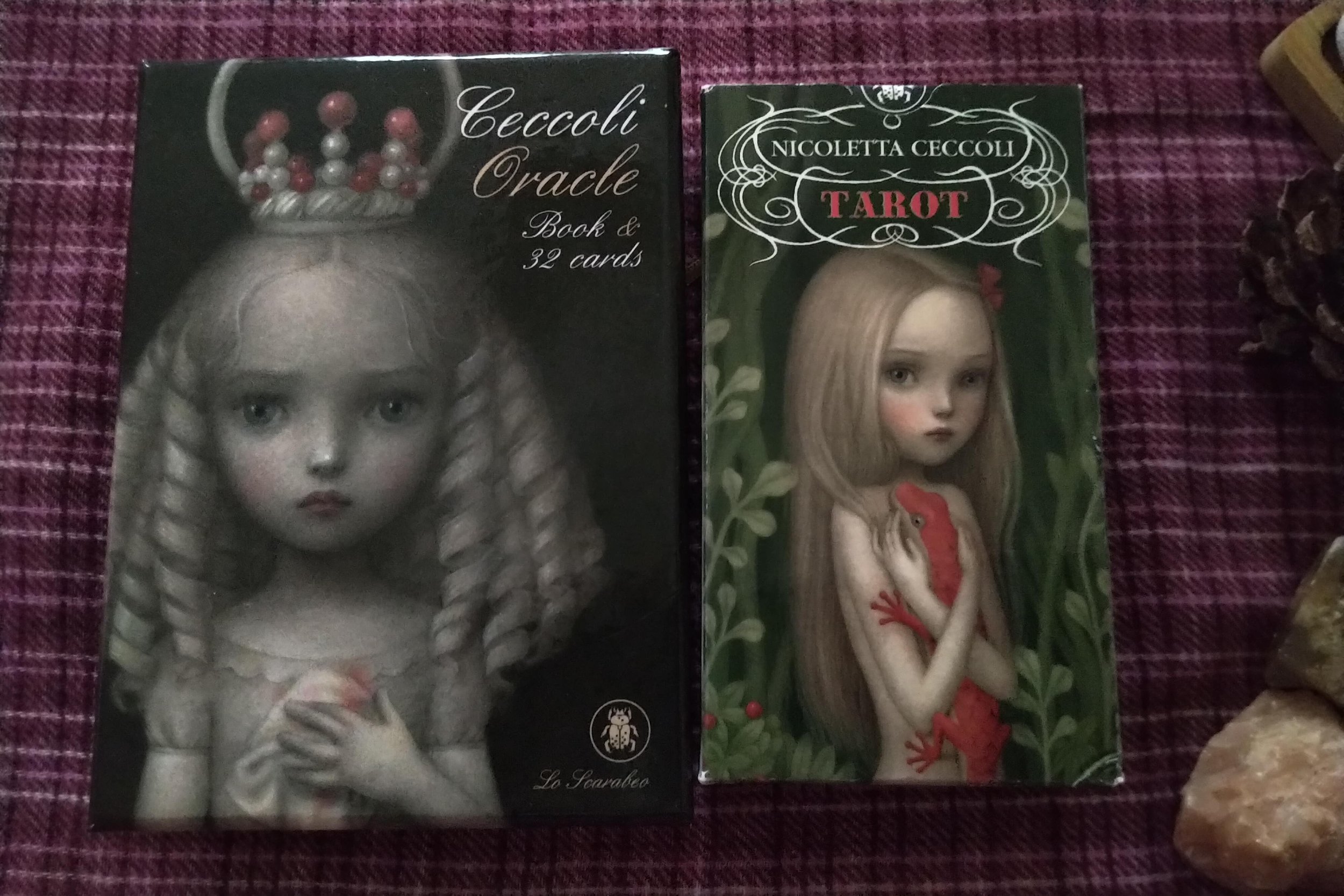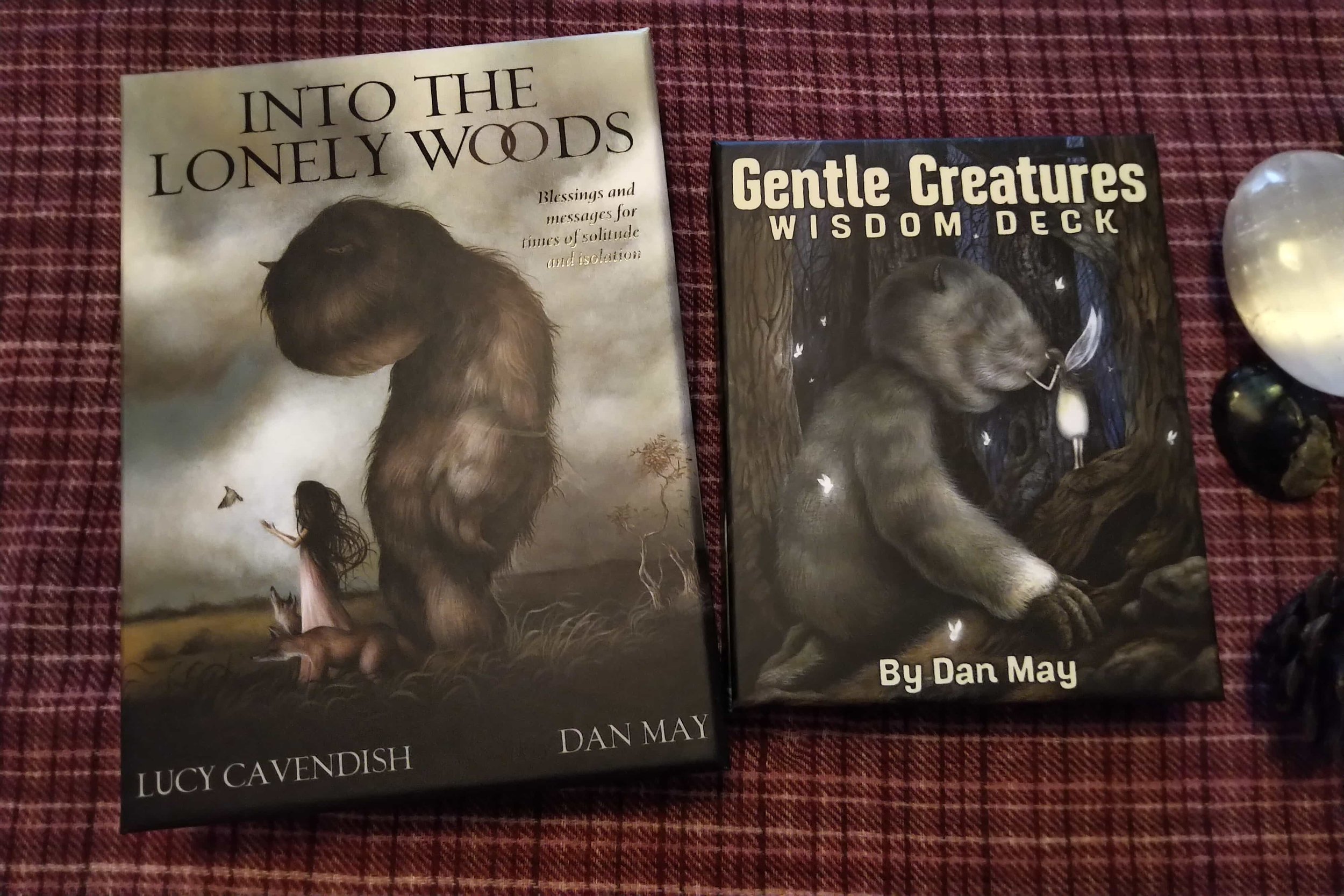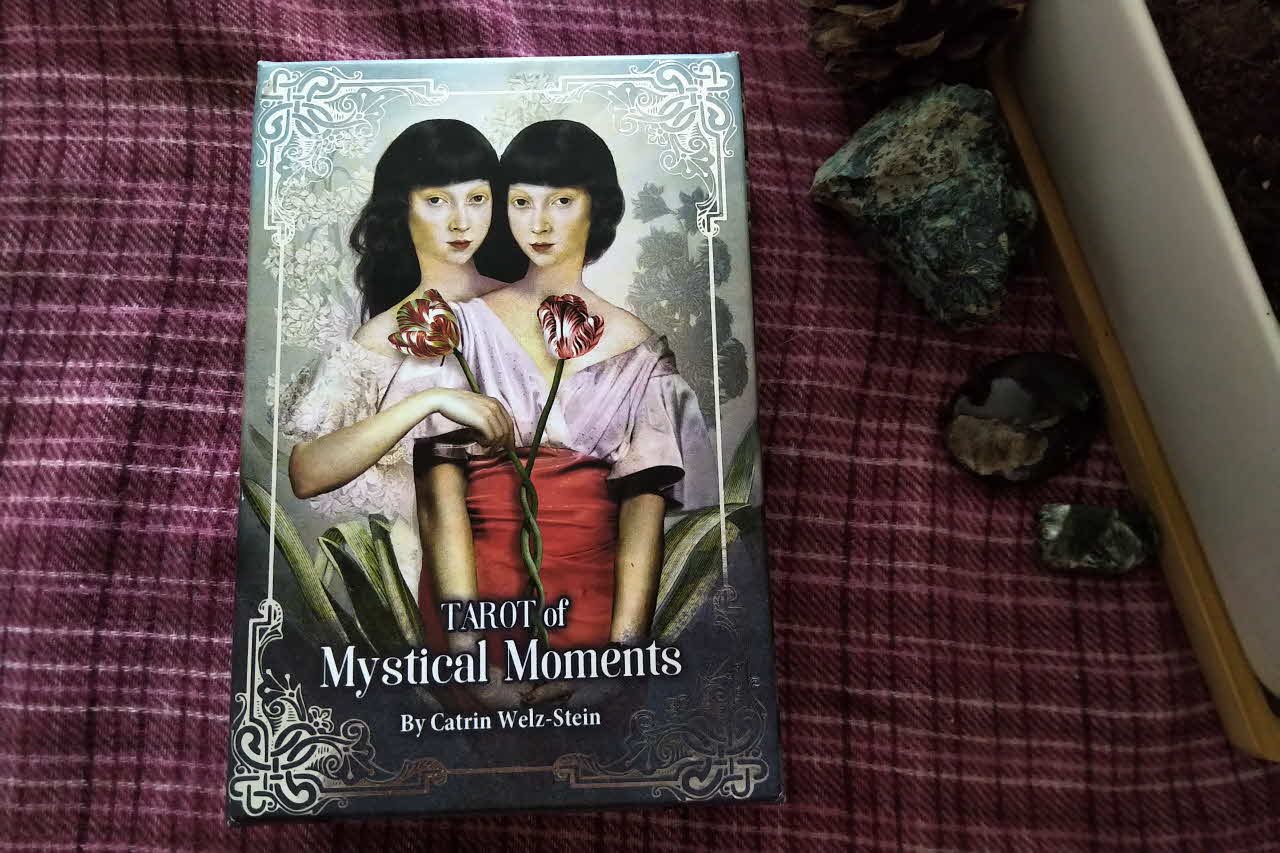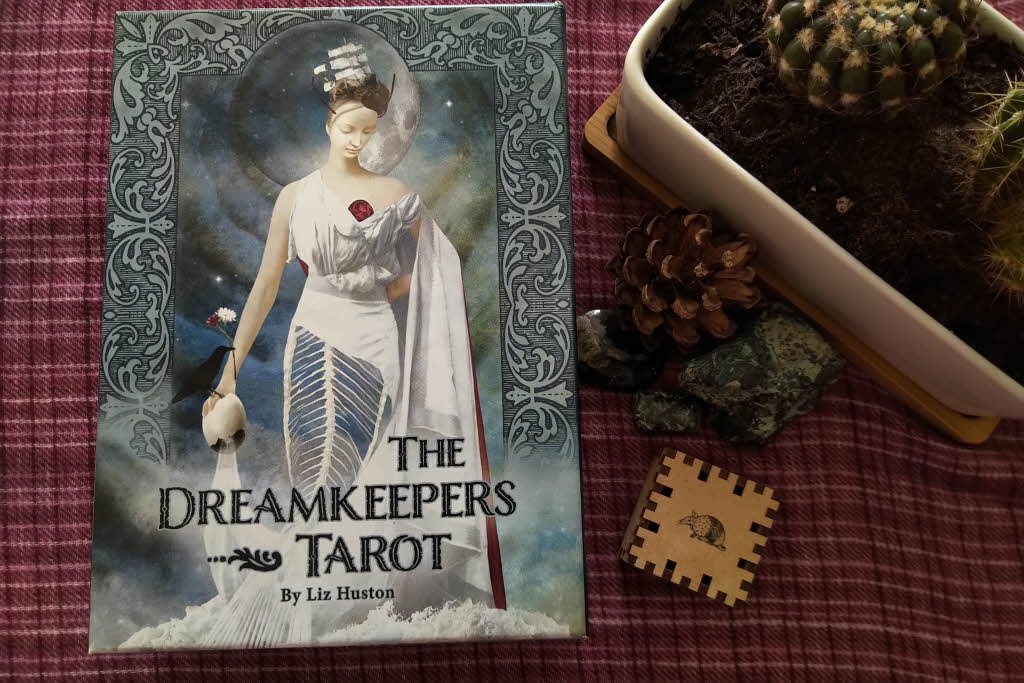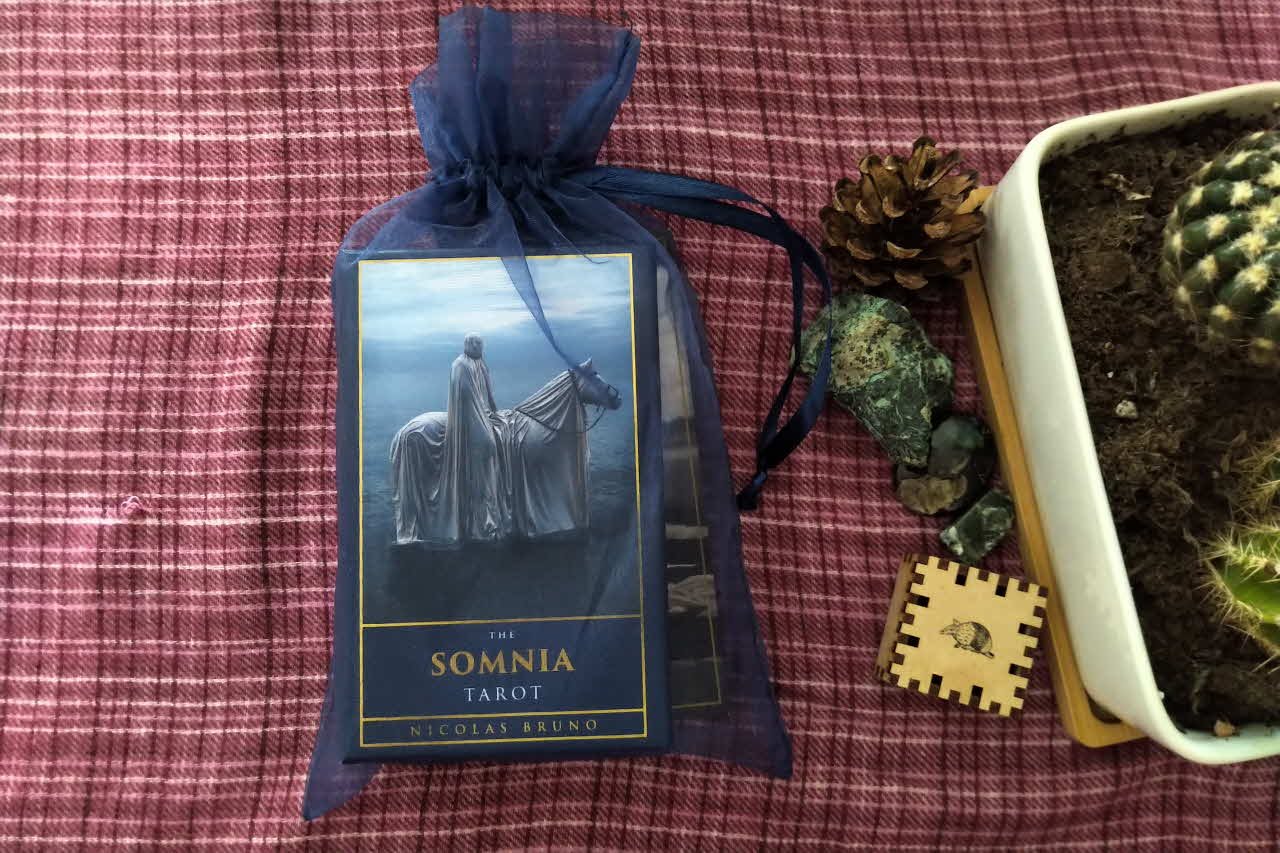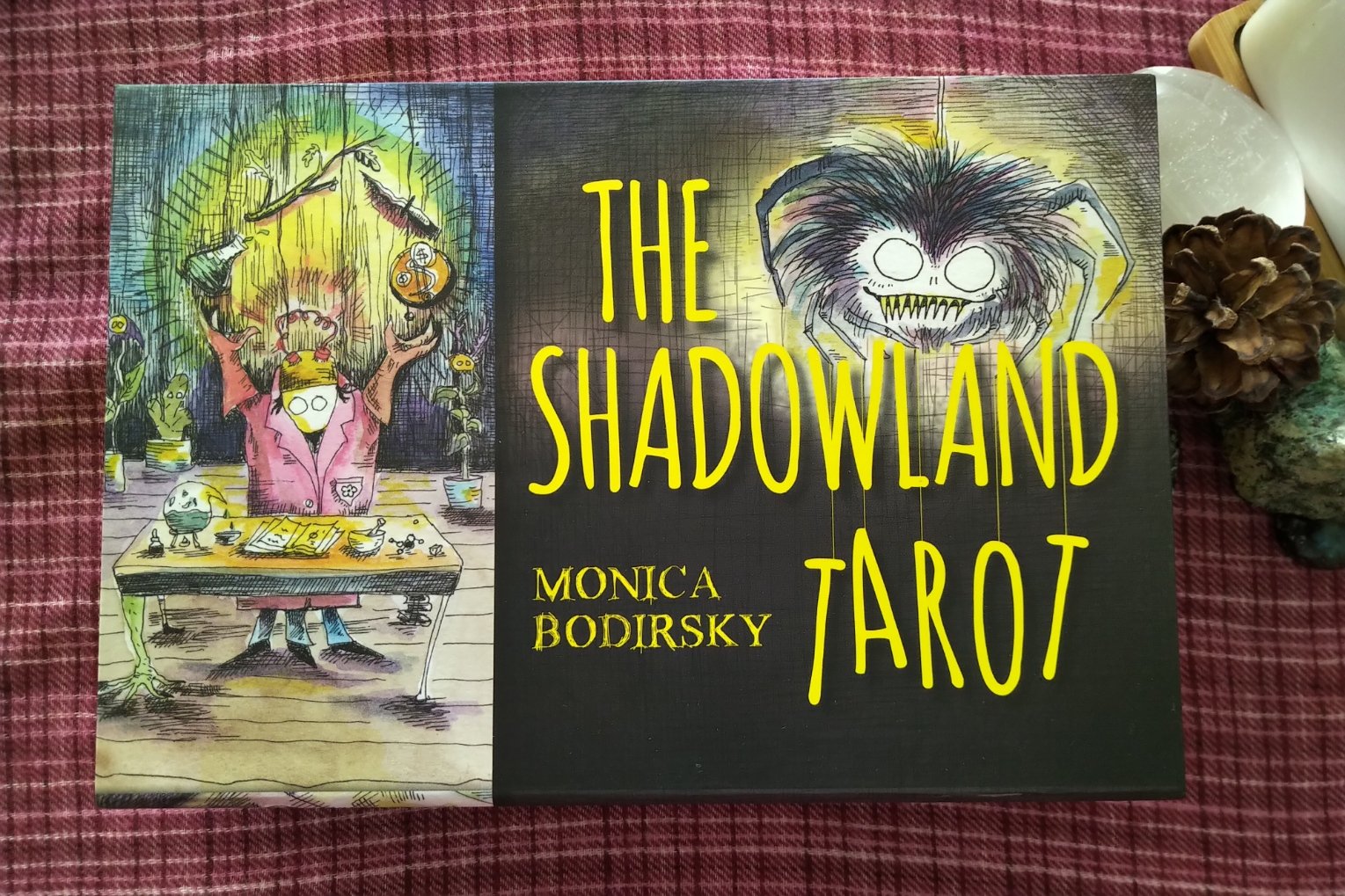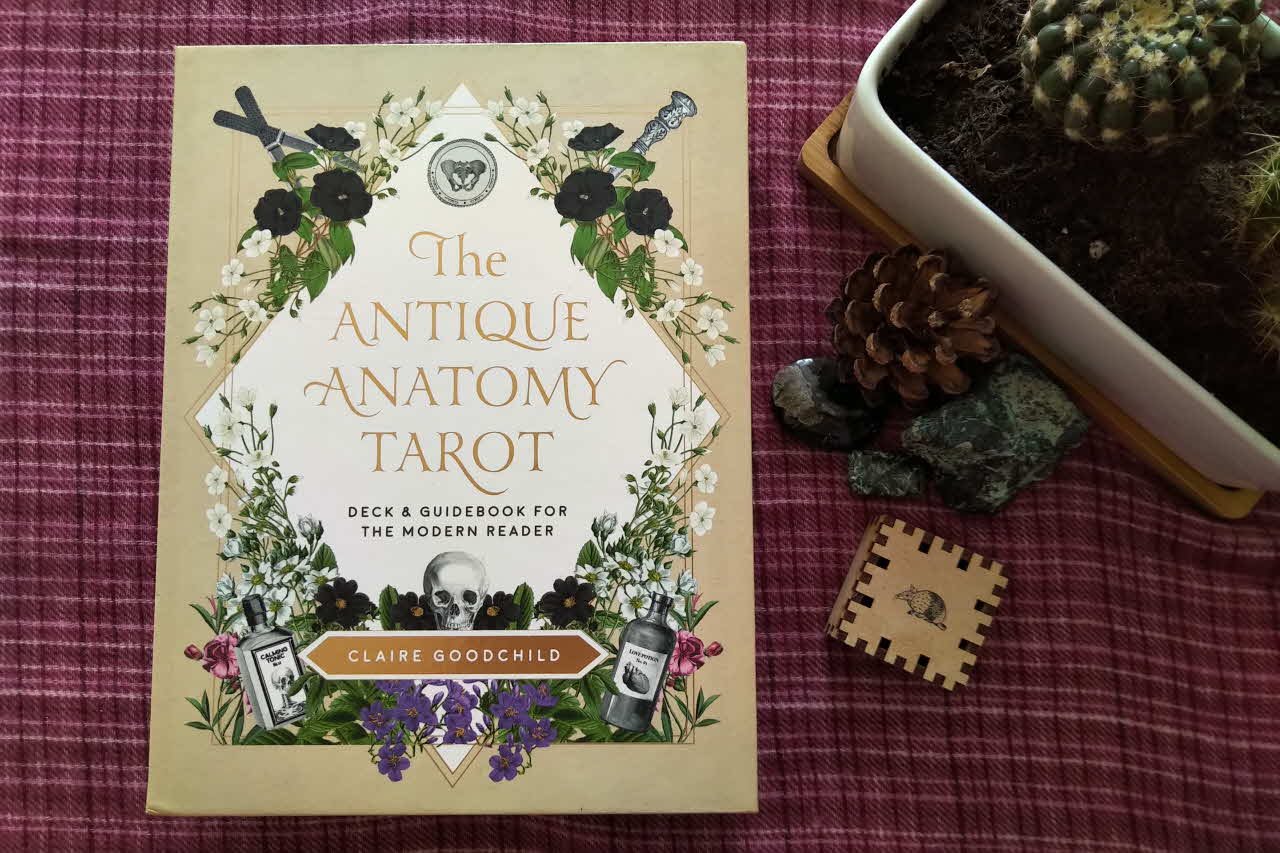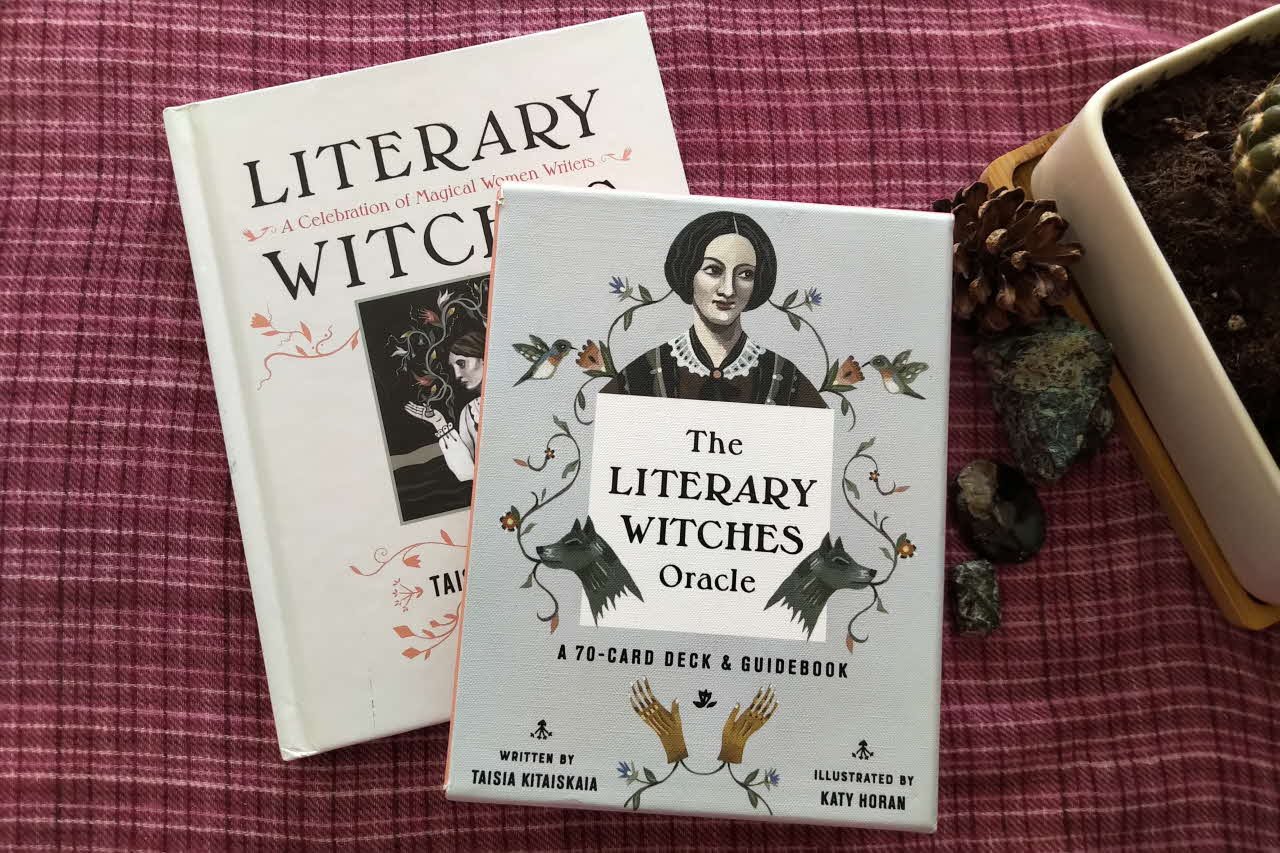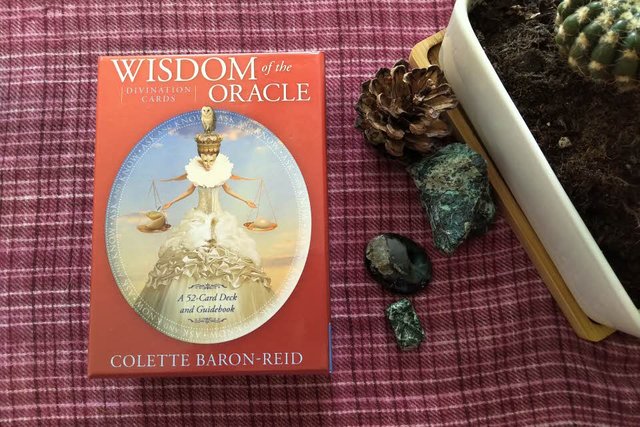The Prophet, an oracle card set
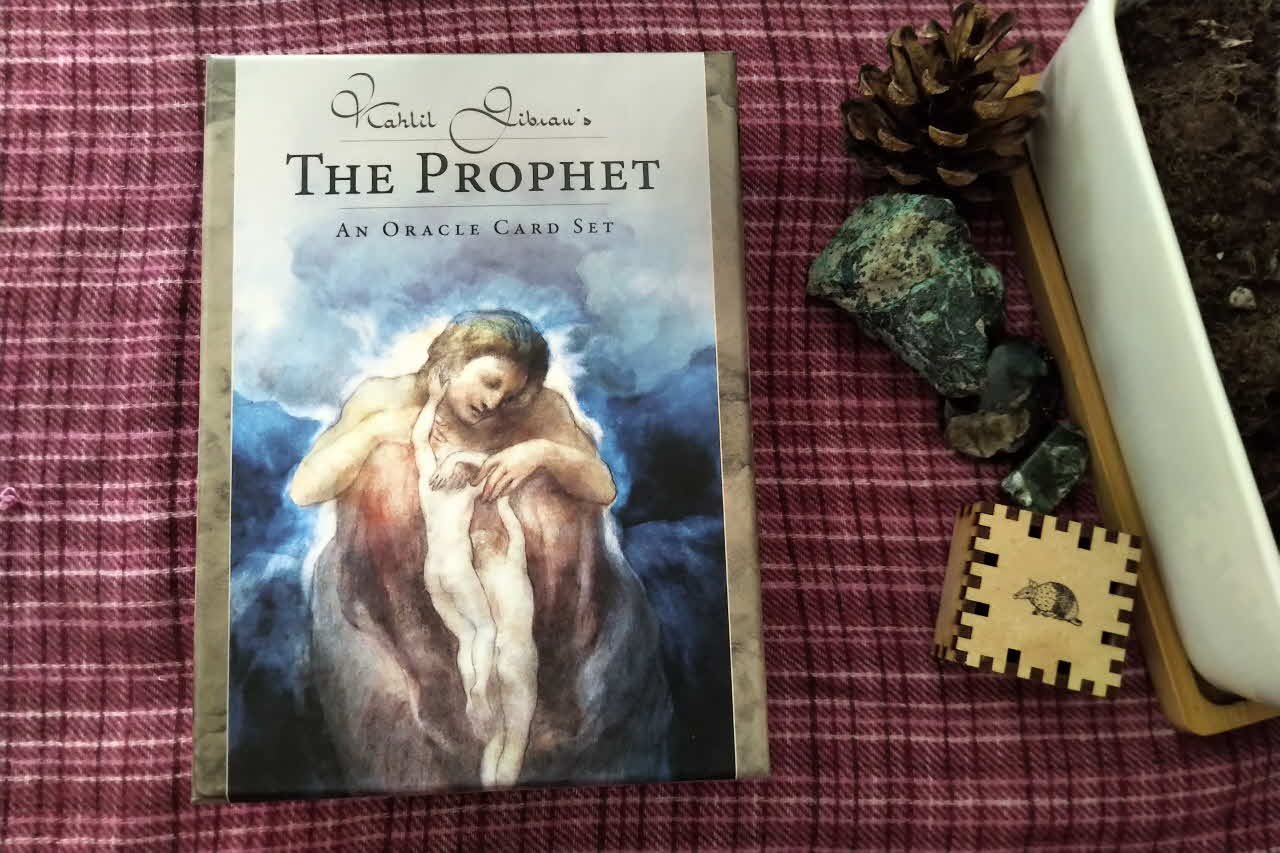
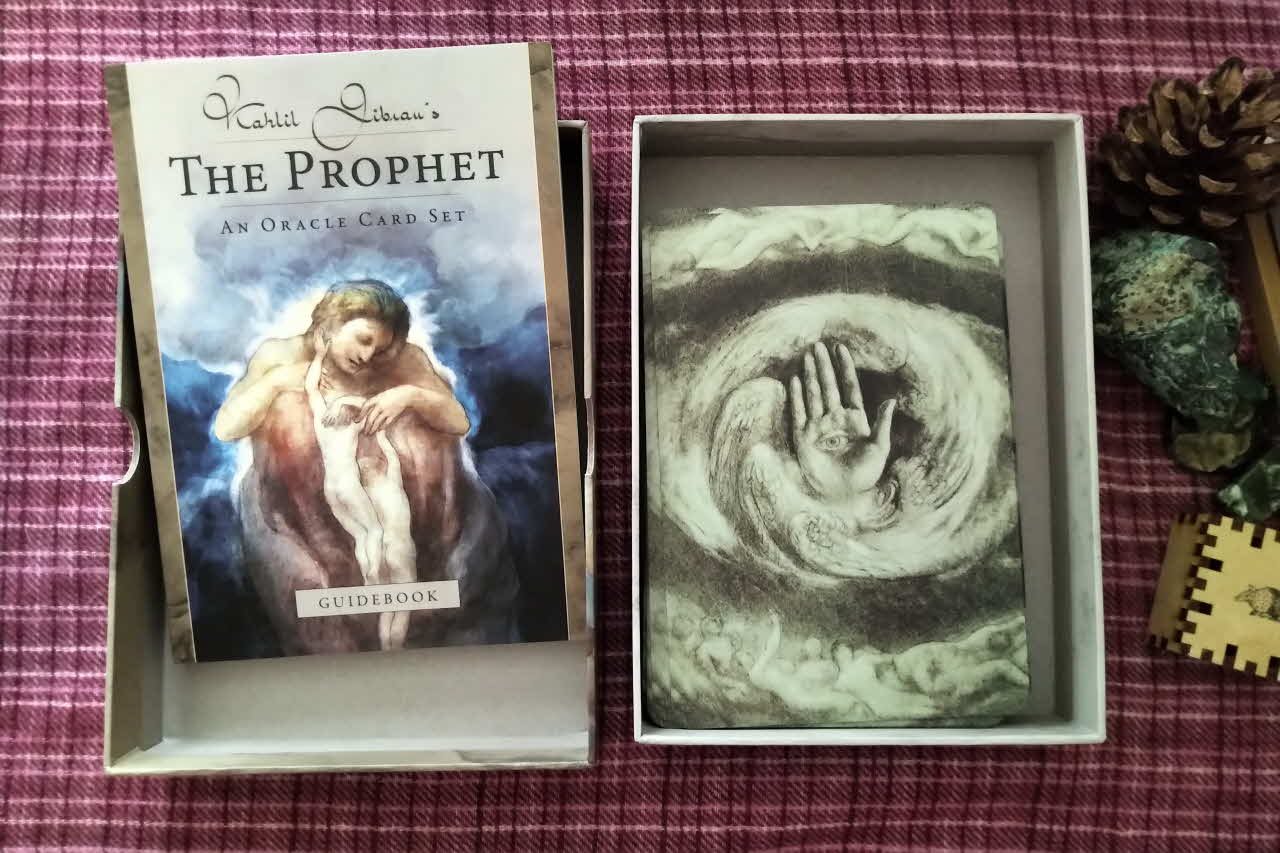
Kahlil Gibran (1883-1931) was a Lebanese-American poet famous for his book The Prophet (1923). His book is one of the best-selling of all time and has never been out of print. I first came across his work in the 1990s when I saw one of his poems on a friend’s wall. Poetry is not my favourite genre, but I fell in love the first time I saw the poem ‘Children’. I was far more mystically inclined back then and appreciated its religious undertones.





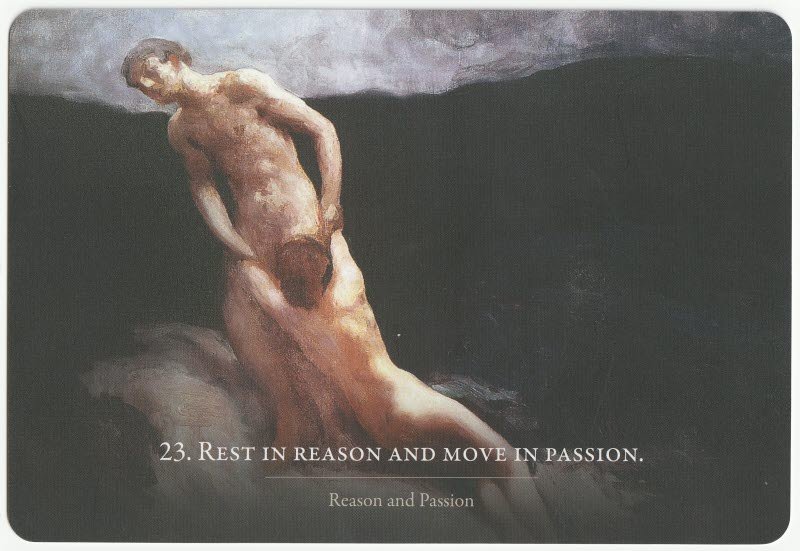
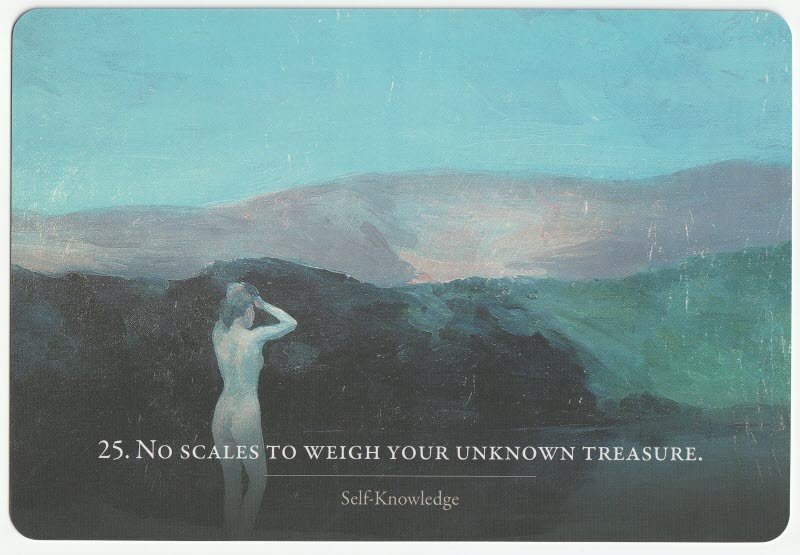
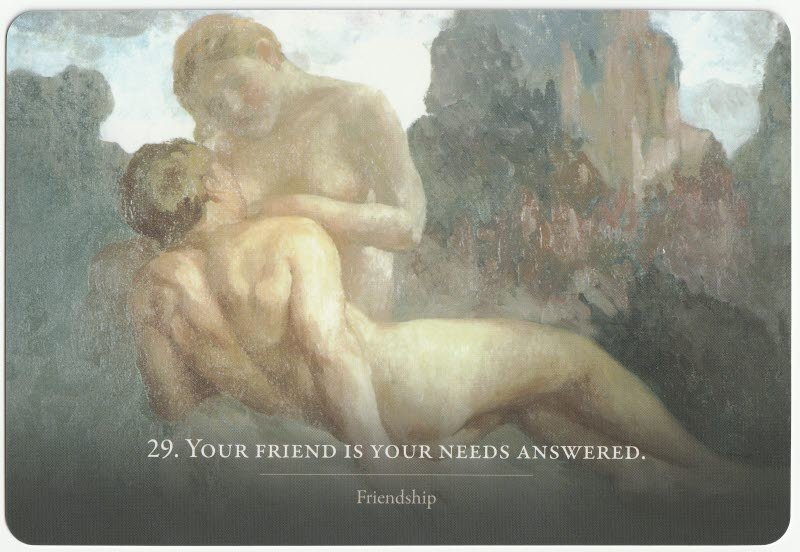
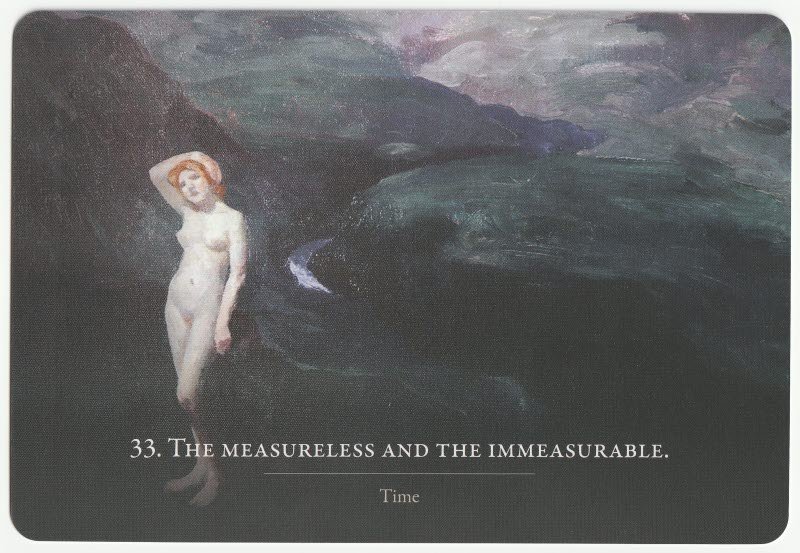
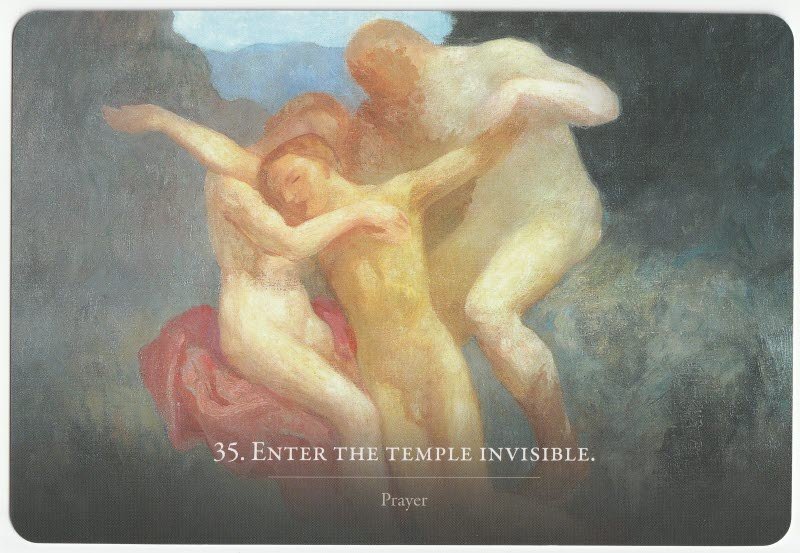
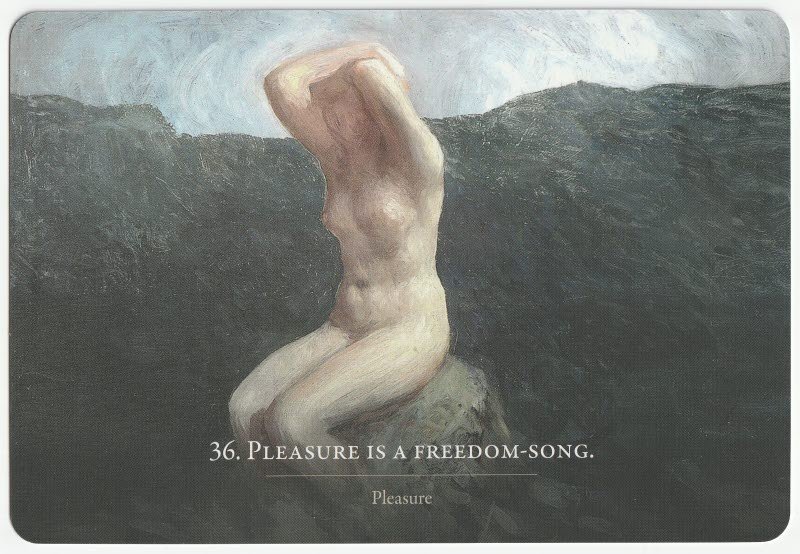
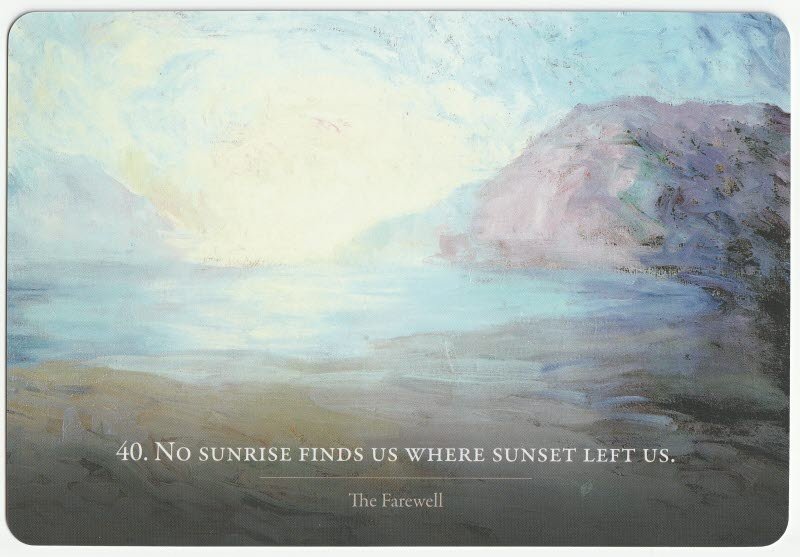
The deck is created using Gibran’s artwork and specific lines from The Prophet. The box is sturdy, but irritatingly there’s no fucking inlay to hold the cards in place. From a practical standpoint, the cards are on the large side and not easy to shuffle. It’s also a little irritating because the artwork combines horizontal and vertical positioning. I generally prefer to see consistency so that it doesn’t interrupt the flow. That being said, there are only forty-two of them, which means it’s best used for single card pulls rather than trying to do a reading. The guidebook is split into two parts. The first part gives the oracle card, and a small piece of poetry it was extracted from. The book’s second part is actually the entire text of The Prophet, which I think is really useful. The deck lacks originality, but if you’re a fan of the book, you’ll probably love it. It’s excellent to use for a daily guidance prompt — especially if you are trying to simplify your thought process. I find The Prophet to be very heart-centred and rather deep in places. Although, I’d say it’s relatively grounded because it directs you to be more philosophical and doesn’t spout anything unbelievable. The book encourages you to be more graceful, grateful, and the best version of yourself. It’s basically a book of counsel for daily life. Blue Angel Publishing published it in 2019.
After the selfsame well from which your laughter rises was oftentimes filled with your tears.
And how else can it be?
The deeper that sorrow carves into your being, the more joy you can contain.
Is not the cup that holds your wine the very cup that was burned in the potter's oven?
And is not the lute that soothes your spirit, the very wood that was hollowed with knives?
When you are joyous, look deep into your heart and you shall find it is only that which has given you sorrow that is giving you joy.
When you are sorrowful look again into your heart, and you shall see that in truth you are weeping for that which has been your delight.
Two cards include quotes from Joy and Sorrow, the other being card 14. The card above contains the first part of the passage. Dualism is a feature in many philosophies; it should be no surprise that Gibran relies heavily on it in his work. I’ve always liked the concept of balance, although I can also appreciate there are times in life when it just doesn’t work. I think much depends on the original wound and its depth. Appropriate after a mild break-up? Absolutely! Bereavement? Probably not.
24. Accept the seasons of your heart is a poignant message that all things are cyclical, including emotions and connections to loved ones.
Your pain is the breaking of the shell that encloses your understanding.
Even as the stone of the fruit must break, that its heart may stand in the sun, so must you know pain.
And could you keep your heart in wonder at the daily miracles of your life, your pain would not seem less wondrous than your joy;
And you would accept the seasons of your heart, even as you have always accepted the seasons that pass over your fields.
As before, I think much depends on the nature of the wound. We often need reminding that we can’t avoid pain and that it is indeed a part of life. Gibran’s work can be practical if you include it in your fundamental outlook on life. Much of it is rooted in the action of acceptance. I do think we have limits, though. There are situations where no amount of philosophy or acceptance will ever lessen the pain felt — but for the most part, those situations are thankfully few and far between. I’m trying to stress that it’s always good to try and self-soothe to a better emotional place but that it’s healthier to acknowledge that sometimes an experience can be overwhelming.
I had to include the card that contained a quote from ‘Children’. Rather than giving the small section included for the oracle, I’d like to show the entire passage.
And a woman who held a babe to her bosom said, "Speak to us of Children."
And he said:
Your children are not your children.
They are the sons and daughters of Life's longing for itself.
They come through you but not from you,
And though they are with you, yet they belong not to you.
You may give them your love but not your thoughts.
For they have their own thoughts.
You may house their bodies but not their souls,
For their souls dwell in the house of tomorrow, which you cannot visit, not even in your dreams.
You may strive to be like them, but seek not to make them like you.
For life goes not backward nor tarries with yesterday.
You are the bows from which your children as living arrows are sent forth.
The Archer sees the mark upon the path of the infinite, and He bends you with His might that His arrows may go swift and far.
Let your bending in the Archer's hand be for gladness;
For even as He loves the arrow that flies, so He loves also the bow that is stable.
There is an awful lot of wisdom packed into that short passage. One of the most powerful messages is that trying to impose too much of yourself on your children is not a good idea. However, the philosophy could apply equally to anything created. Gibran is counselling against the more oppressive style of parenting that seeks to impose beliefs, careers, and whatever else onto their kids. It serves as a reminder that all humans have their own path to walk in life and that they should be free to make their own choices, whatever their roots. More than anything, it reminds us there is a limit to what can be considered healthy. Margaret Mead’s saying, ‘Children must be taught how to think, not what to think.’ springs to mind. Maybe she liked the book too?











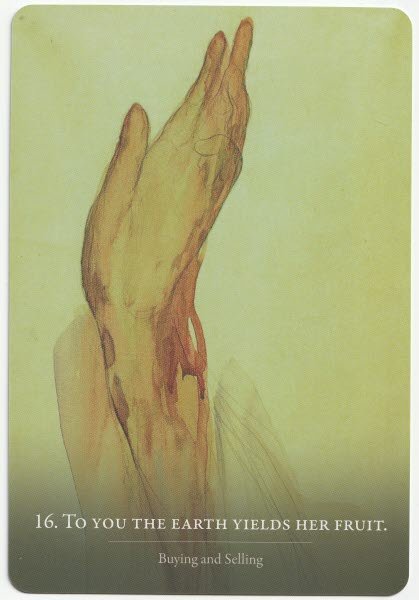
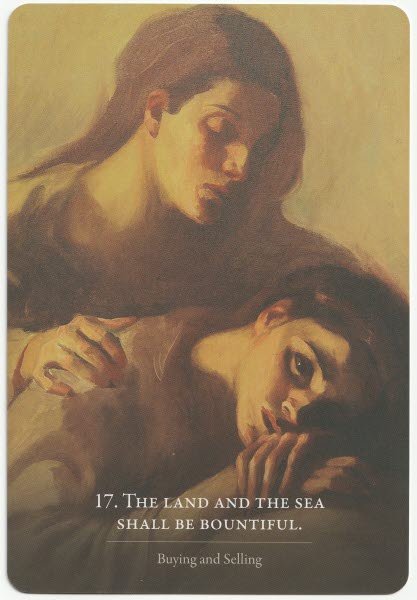
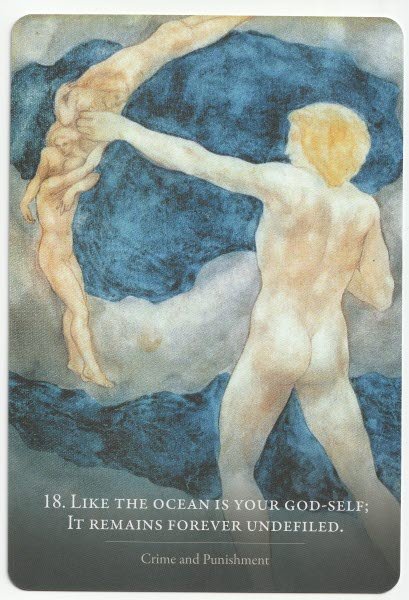

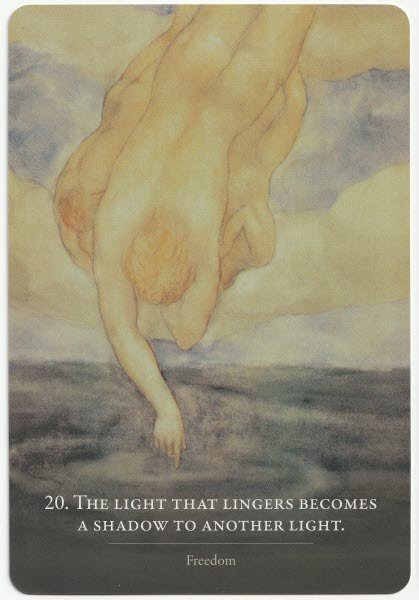
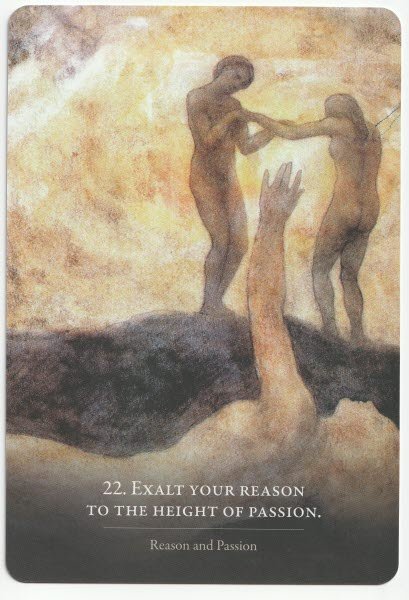
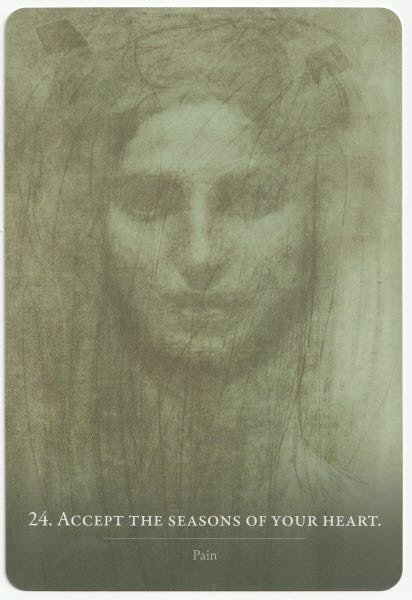
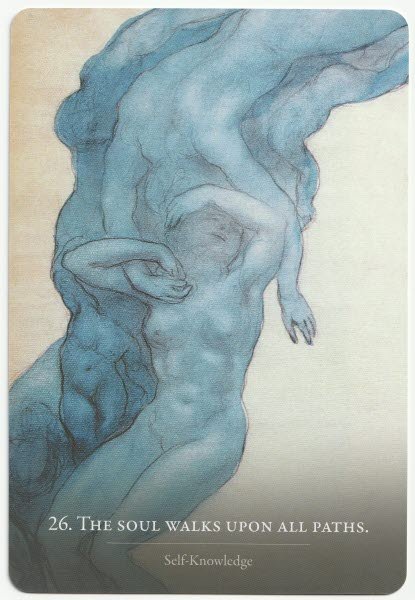
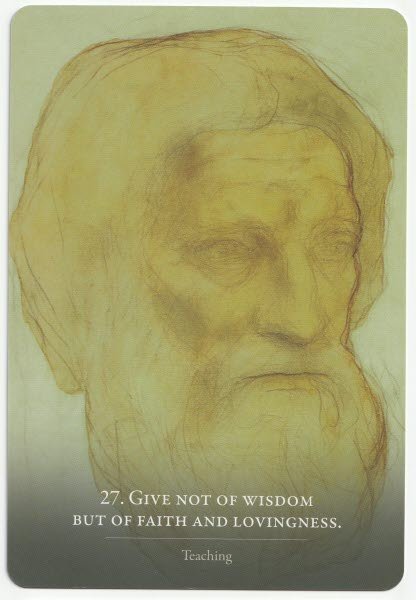
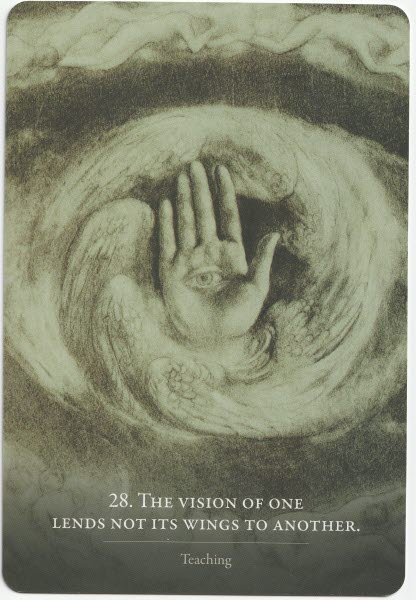
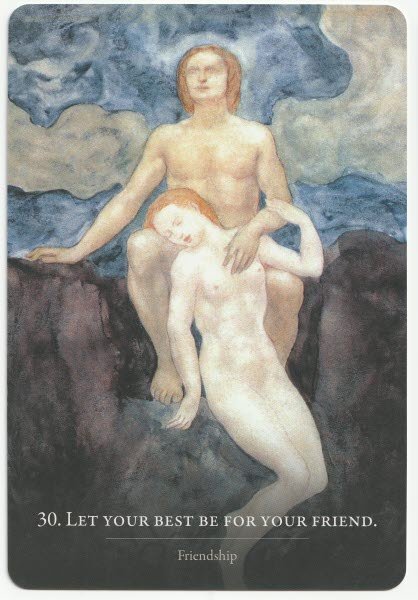
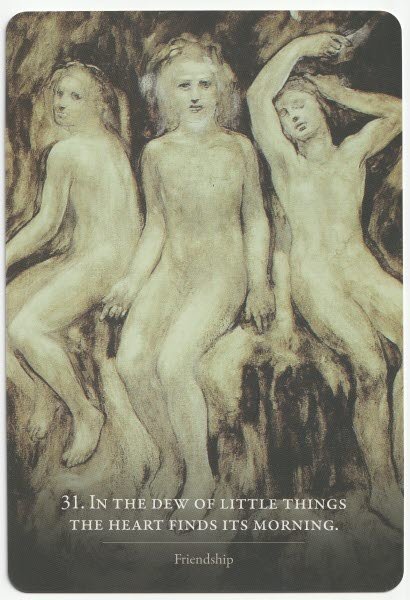
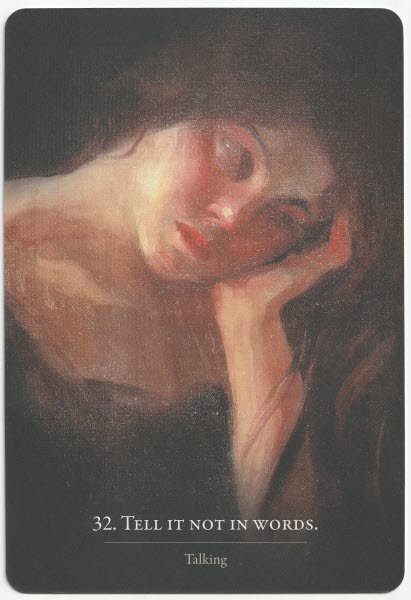
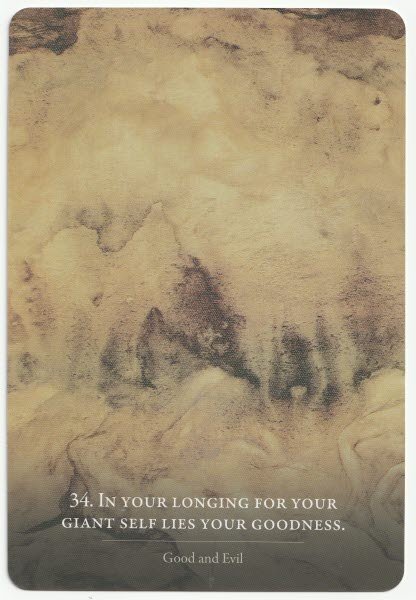
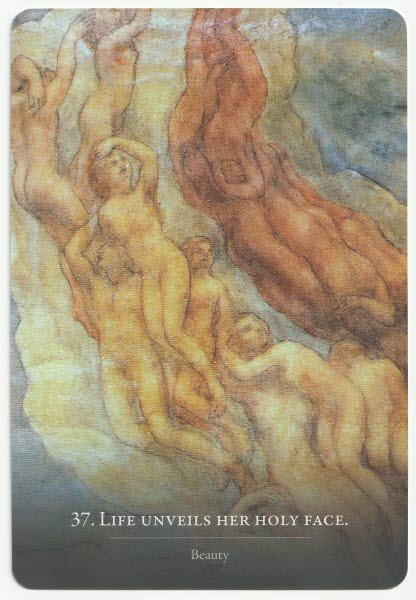
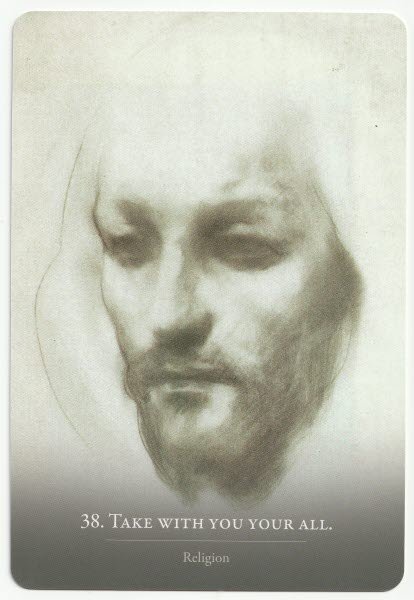
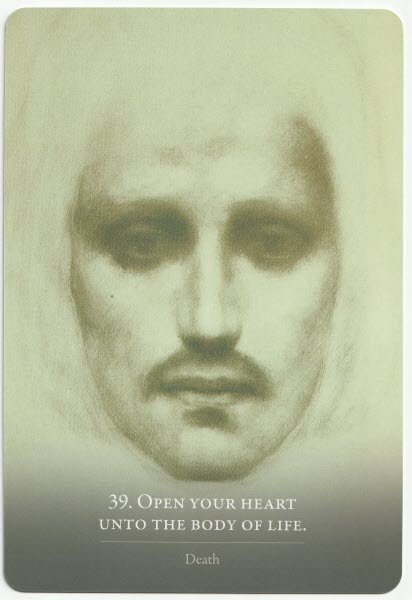
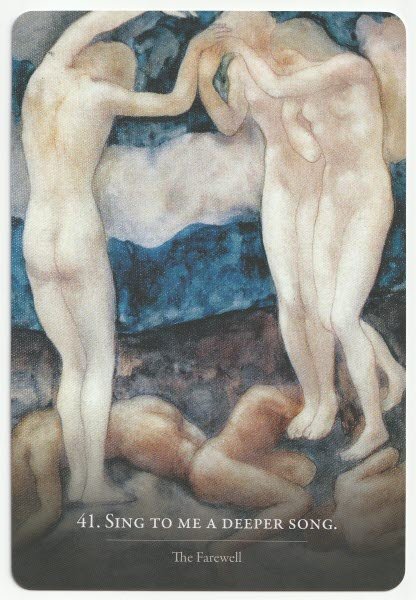
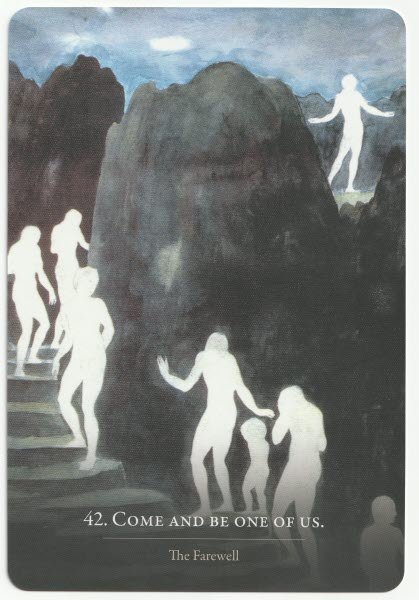
The Prophet oracle card set will be helpful to those who like mysticism and all things spirituality, but I wouldn’t actually consider it an oracle deck. It’s a particular vibe and might not interest those who prefer a faster pace or more intensity. Those actively trying to free themselves from childhood conditioning may find it liberating in places. Overall, I like the concept of being able to shuffle and pull out something meaningful. However, I suppose it would be as valid just to open the original book at a random page and start reading. The problem is that once you know the book, you’ll have a reasonable idea of knowing what comes where. On a personal level, the deck serves as a reminder that I found the book meaningful once upon a time, reminding me that it’s okay to be forever growing as a person. Yes, we’re likely good enough, but can we do better?

